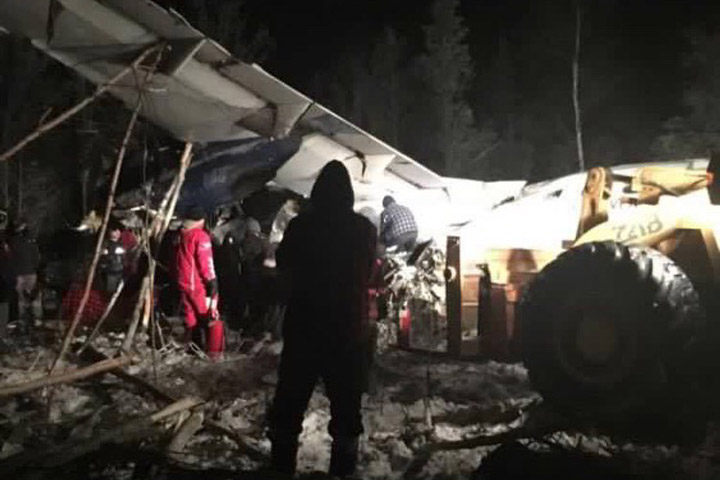First Nations chiefs say a plane crash in northern Saskatchewan demonstrates the need for upgraded runways and all-season roads in remote communities.

A West Wind Aviation turboprop crashed Wednesday night with 22 passengers and three crew members aboard a flight from Fond du Lac to Stony Rapids.
No one was killed but at least five people were seriously injured and needed to be airlifted to hospital.
Fond du Lac Chief Louie Mercredi said the crash shows the airstrip in the fly-in community must be upgraded.

Get daily National news
He says the community has one of the shortest runways in northern Saskatchewan, even though the size of planes using the airstrip continue to grow.
WATCH BELOW: Plane with 25 people on board crashes in northern Saskatchewan

Mercredi said they could also use an all-season road so people have a choice about whether they want to fly in and out of the community.
“We as leaders need to sit down with the province regarding all-season roads and upgrades to our runways,” Mercredi said.
There is an ice road in the winter, but the chief says many people still fly.
Prince Albert General Council vice-chief Chris Jobb said similar concerns need to be addressed in other remote Saskatchewan communities such as Wollaston Lake and Hatchet Lake.

Comments